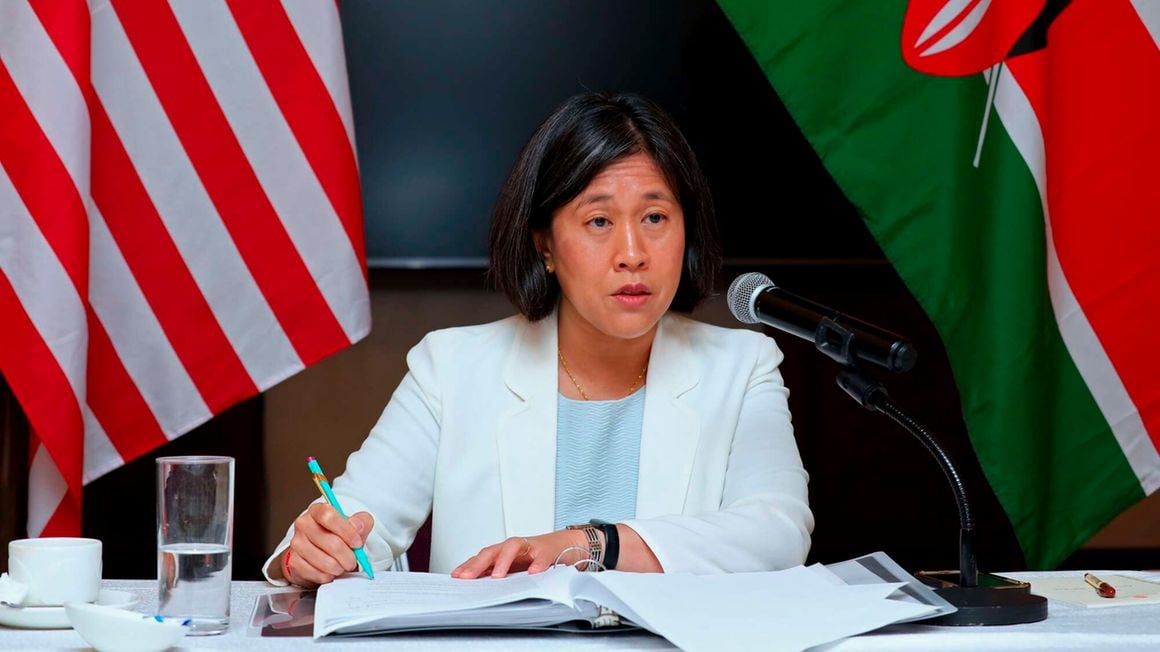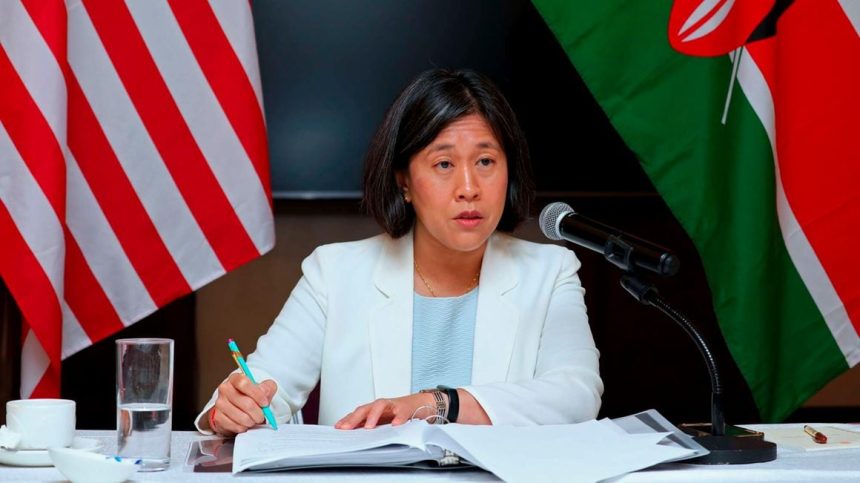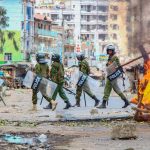The US is non-committal about when negotiations for a free trade deal with Kenya will be concluded despite Nairobi earlier saying the talks would be finalised by December.
The United States Trade Representative Katherine Tai, who concluded her three-day tour in Nairobi on Wednesday, indicated the US negotiators do not have a deadline for concluding talks or signing the proposed US-Kenya Strategic Trade and Investment Partnership (STIP).
“In terms of signature and when will we conclude, our focus right now is on substance as opposed to setting an actual deadline,” Ms Tai said in a media briefing in Nairobi.
“There’s a strong motivation on both sides to continue to build trade and economic relationships through these STIP discussions. So I am very encouraged with the engagement that we have had here and we will see how quickly we can move things forward.”
The proposed trade deal, which does not have clauses on tariffs, is expected to shield Kenya in the event that the US Congress chooses not to renew the African Growth and Opportunity Act (Agoa), which gives countries in the sub-Saharan Africa duty- and quota-free access to the American market, when it expires in 2025.
Kenya’s Trade Cabinet Secretary Moses Kuria had in March said he expected the negotiators to finalise talks in December to pave the way for the signing of the deal by April 2024.
The Trade Ministry’s expectations to finalise the talks by December were affirmed in A report by the National Assembly Committee on Trade, Industrialisation and Cooperatives in June.
The two countries held the first round of talks on the proposed trade deal, which will be used as a benchmark for the remainder of the sub-Saharan African countries, in Nairobi between April 17 and 20.
Ms Tai, who co-led a meeting of the US-East African Community (EAC) Trade and Investment Framework Agreement (TIFA) Council on Tuesday, said ongoing discussions on STIP were part of the agenda for her visit to Nairobi.

“The large part of my being here is to enhance engagements and conversations on this strategic and investment partnership,” she said.
“Progress is going very well. I had good conversations with my counterparts and it was part of discussions with President Ruto as well.”
The US topmost trade official did not, however, meet Mr Kuria.
Daily Nation reported on Wednesday that the US official was to meet Mr Kuria on Monday at his Two Rivers office but cancelled, labelling him an ‘extremist’ over his unpalatable remarks against individuals and institutions.
An official guidance from the United States Trade Representative Office had indicated the US official was to meet East African Community (EAC) Affairs Cabinet secretary Rebecca Miano, hold a fireside chat with women and youth entrepreneurs and meet with private sector representatives.
“I have not met with him, but nevertheless I have had very robust engagements with other counterparts in the Kenyan government on STIP as well as the EAC work. In terms of why I didn’t meet him, I will have to refer you to the Kenyan government,” Ms Tai said.
“My visit here is very much about advancing, deepening and broadening the US-Kenya relationship and economics as well as the US trade economic relationship with East Africa.”
Trade between the two countries is tilted in favour of the US, which exported goods worth Sh93.43 billion last year while buying merchandise valued at Sh79.9 billion from Kenya.
Kenya largely exports articles of apparel under the Agoa pact, while largely importing pharmaceutical products and aircraft from the world’s largest economy.
The ongoing negotiations are a build-up to the bilateral agreement whose terms Kenya and the US started stitching together in July 2022 before the end of former President Uhuru Kenyatta’s term in office.
Kenya has long sought a full free trade agreement with the US to replace the two-decade-old Agoa, but progress has been dragged by changes of administrations in both countries.
The discussions on the proposed bilateral trade deal, however, started in earnest in August 2018 when then-president Kenyatta visited Washington and held talks with then-US president Donald Trump in the White House.
Mr Kenyatta and Mr Trump at the time identified economic development and trade as the pillar of the “strategic relationship” between Kenya and the US.



